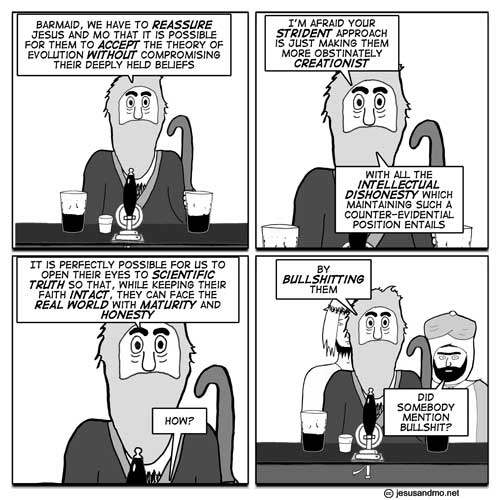Ed Stein's commentary:
Financial reform actually passed. Another victory for Obama, despite the furious objection of the other party and their Wall Street masters. Much too late, of course, and not strong enough, but at least they’re turning the Titanic slowly away from the deregulatory daze that got us into this mess in the first place. That’s little solace to those of us who have watched our investments dwindle. We could use a little old-fashioned irrational exuberance. Where’s the next bubble going to come from if Wall Street is held accountable? I’m going to have to go back to making money the old-fashioned way, by working for it. And I don’t like it one bit. Let’s have one more round of insanely inflated stock prices. This time I’ll get out when I have enough to retire, and I won’t care when the inevitable bust comes. Then you can regulate all you want. Sound like a plan?
Heh, heh. I thought this was funny, because I'll bet there are a lot of people with the same idea. But irrational exuberance doesn't work that way. When the next bubble comes along, more people will be getting
in at the top than will be getting
out. That's just the way it works.
Of course, you don't have to be one of them. But tell me, in March of last year, when pretty much no one was optimistic, were you scrambling to put as much cash into the market as you could? That's when you need to invest, you know, when the sky is falling. But it's not easy. And you can't expect to time the market exactly. It's quite likely that you'll invest and then see the market continue to fall. Do you have the courage to accept that?
When Lehman Brothers collapsed in the fall of 2008, panic struck the stock market. Stock prices seemed to be in free fall. But following Warren Buffett's dictum to be greedy when others are fearful, I was a buyer. Prices rose again almost immediately, but in a few months, the market tanked, going even lower for awhile. Again, we were in panic mode, and again, I tried to scrape up some cash for more investments.
I was lucky. There were good reasons to be fearful (there always are), and the market could have continued to drop. Heck, we could easily test those lows again, since we may well be dropping back into recession (not enough stimulus spending and the deliberate attempt of Republicans to sabotage our economy for political purposes). My point is that it's not easy going against the crowd. Good investors make their money when everything seems to be going to hell (and through patient accumulation the rest of the time).
Bad investors, on the other hand, cash out at the bottom and then jump back in when everyone is talking about the easy money to be made in the stock market. Well, they don't call it irrational exuberance for nothing. It's when prices go up - and up and up - that you should start to get worried. But again, that's not how it works.
"
This time, yes, give me a bubble and I'll get out at the top." But you probably won't. For one thing, it's seldom easy to tell that we're in a bubble, not ahead of time (hindsight is always 20/20). For another, irrational exuberance can go on for a long, long time. What if you get out and the market continues up for another year, or two? And for a third, seriously, no one can reliably predict such things. Getting out of the market at the top of a bubble is probably not anything you should even attempt.
Don't take financial advice from me. I'm nobody, and I've certainly made my share of mistakes. But here's how I do it. As a general rule, I stay diversified and fully invested (except for an emergency cash reserve). I don't think that
anyone can reliably time the market, not in ordinary circumstances. After all, you're competing against the
wisdom of crowds.
People are always buying and selling, so no matter what happens,
some people will always get it right. But you can't predict that ahead of time. If monkeys were throwing darts to make investment decisions, you'd see the exact same thing. Some of them would look like great investors, at least in the short term. It's simply a product of statistics.
But in times of widespread panic - and also in times of irrational exuberance - the wisdom of crowds breaks down. Crowds turn into mobs. You lose diversity of thought. You lose independence. People tend to follow the mob, because of either fear or greed. You need to take advantage of these occasions, at least to some extent. When it looks like a bubble, I try to take some cash out of the market. I never get out completely. After all, I could be wrong. And I'd have to pay taxes, which means that I'd lose some of my return right off the bat. But when times are really good, it never hurts to accumulate a bit of cash. (The market may continue to rise, sure, but you probably won't make the big money from that point on.)
For the rest of it, I try to underweight what's really been booming and overweight what has lagged the market. During the tech stock mania at the end of the 1990's, I took some profits in the tech sector and invested in small-cap value stocks, which had been lagging badly. When the tech bubble collapsed, small-cap value stocks rose strongly, at least the first year. There were several bad years then, but they were far, far worse for tech stocks than for other parts of the market.
One of the problems with timing the market is that you have to be right
twice. You have to get out of the market at the right time, and then you have to get back in the market at the right time. Neither of these are easy, not at all. If the market goes down, you might be tempted to buy again. And you might be right. Or it might be the very beginning of a terrible bear market. It's just really hard - nay, impossible - to tell. But when you
need to buy again is when panic strikes. If everyone is running for the hills, that's the time you can find some real buys.
Of course, you have to have the cash in order to buy. One of the problems at market bottoms is that cash can be hard to come by. If you've taken some cash out of the market during the bubble (and resisted the urge to reinvest at the first sign of weakness), that will help. But when times are bad, your job may not be secure. You might just need that cash. None of this is easy. Do not expect to get it perfectly right, and
do expect for things to go horribly wrong sometimes. (Note that I recommend keeping an emergency cash reserve at all times. How much depends on your own circumstances, but the volatility of the stock market will hurt you badly if you're forced to sell at a low point.)
This is more than you wanted to hear, no doubt. If you're still with me, are you looking for my current forecast? Frankly, I have no idea. I'm not optimistic, not in today's political climate. As a people, we're apparently not smart enough to learn from experience. We learned during the Great Depression that government stimulus was the best answer to an economic collapse. Since private demand evaporates, with people either losing their jobs or worried about the future (and therefore saving what money they have), government must temporarily step in. This gets people working again, and money going to low and middle income people will get spent, which doubles and triples the effect. (Extra money for the wealthy is almost useless, since they won't spend much of it.)
But Republicans see a political advantage in keeping us in recession. The average voter isn't too bright, and we tend to blame the party in power for bad times. Of course, these bad times were caused by
Republican policies, not by Barack Obama. And the deficit - which the Tea Party movement supposedly abhors - is the result of actions taken during the Bush administration: tax cuts for the rich (which were supposed to pay for themselves with a "trickle-down" effect, but didn't), two unnecessary wars (fought on credit, since they were also supposed to "pay for themselves" - needless to say, this was just fantasy, too), the economic collapse itself (due to their mania for deregulation and the bubbles created by those tax cuts for the rich), and the interest payments for all this.
The GOP isn't even bothering to change policies. They're pushing the exact same policies that were proven failures during the Bush years. Hard to believe, isn't it? What's even harder to believe is that we seem to be dumb enough to buy it! I don't care how hard Fox "News" pushes this stuff, it's still incredible. How can we be this dumb? Or is it more a matter of cowardice? We Americans seem to have become hopeless cowards in recent years. Is fear simply making us irrational?
At any rate, I'm not optimistic right now, not at all. But I certainly don't see irrational exuberance in the market, either. For the most part, I'm hearing doom and gloom, and that tends to be a positive indicator. The stock market always "climbs a wall of worry." If people are worried, they don't create bubbles. But that's not to say that they're wrong to worry, either.
In times like these - which is pretty much the normal state of affairs for the stock market - I'm quite willing to admit that I have no idea. Whatever happens, I'll ride it out. Stocks are volatile. I know that, and I'm prepared for it (or I think I am). At the moment, I can't see any part of the market that seems exceptionally cheap, so I don't intend to move things around, either.
Deflation or even a double-dip recession would be bad for stocks but good for long-term government bonds. But bond yields are already so low that it's hardly worth the bet. Inflation (which appears less likely to me) would be bad for bonds, but possibly good for stocks, at least in moderation. Stagnation would be good for no one. But in the short-term, at least, I just don't know.
In the long-term, things don't look good if we don't wise up. Here in America, we've been on the wrong path for decades now. Since the 1970's, we've been ignoring the energy crisis. We've stuck our heads in the sand in regards to global warming (and we'll have to pay for that, eventually). We've let the rich get richer and the poor get poorer. The average worker was better off in the late 1970's than he is today - actually, than he was even
before this economic collapse.
We no longer lead the world in education, and we're becoming virulently anti-immigrant (odd for a nation of immigrants, isn't it?). We've stopped creating anything but arcane financial instruments - which have just been shown to be mostly a scam. And the Supreme Court has decided (5 to 4, as usual) that multinational corporations are people, too. If you're extremely wealthy, you're probably happy as a lark. But how long can that last if America slowly disintegrates into bigotry, fear, and superstition?
Yes, I'm pessimistic. But frankly, long-term pessimism doesn't make sense. Pessimistic people never accomplished anything. America used to have that can-do spirit, that sense of optimism that often seemed crazy to other people. How could we be optimistic when the future looked so black? But optimism is necessary for change. No matter how bleak things might seem, we can't lose that. And there is a lot of good in America yet. Turn off Fox "News." Ignore the Tea Party. And kick yourself in the butt, if necessary, to lose that apathy.
Vote, damn it! The future is ours to make. So let's make sure that it's a good one.
















